This is an Eval Central archive copy, find the original at freshspectrum.com.
I am writing in response to Chris’ Evaluation as Protest blog. I appreciate the blog’s call to action and hope the examples of concrete actions shared will inspire evaluators to imagine something different and to take action. While reading the blog, I noticed that a perspective was missing: the police and prison abolitionist movement. Instead, I saw two approaches to reforming the criminal legal system or prison industrial complex: Campaign Zero and the Obama administration’s President’s Task Force on 21st Century Policing. I reached out to Chris to flag what I saw as a gap, and he asked me to write a blog about it. So, here I am!
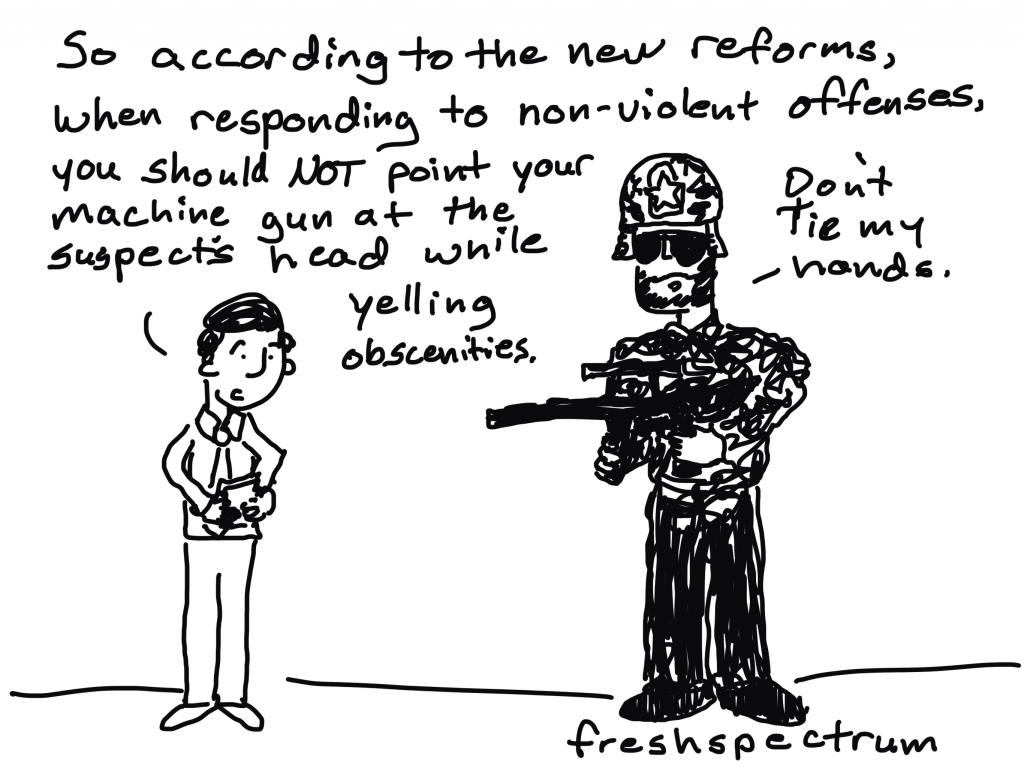
On the surface reform makes sense. And it has gained traction among many Democrats in this moment of increased attention on police brutality and growing support for BLM. Even where I am residing in Colorado a police reform bill passed in response to protests here locally, which includes reforms like bans on chokeholds and body camera requirements. In contrast to reforms, abolitionists have been arguing since the 1960s that reforming the prison industrial complex will not work.
I want to share a bit of the abolitionist perspective with you today, and then directly connect this to my evaluation practice. Perhaps it will inspire you to do the same. There is no way that I can do the decades of work preceding me and still happening justice in a blog post. However, there are a multitude of abolitionists you could turn to if my words inspire you to learn more (read on!).
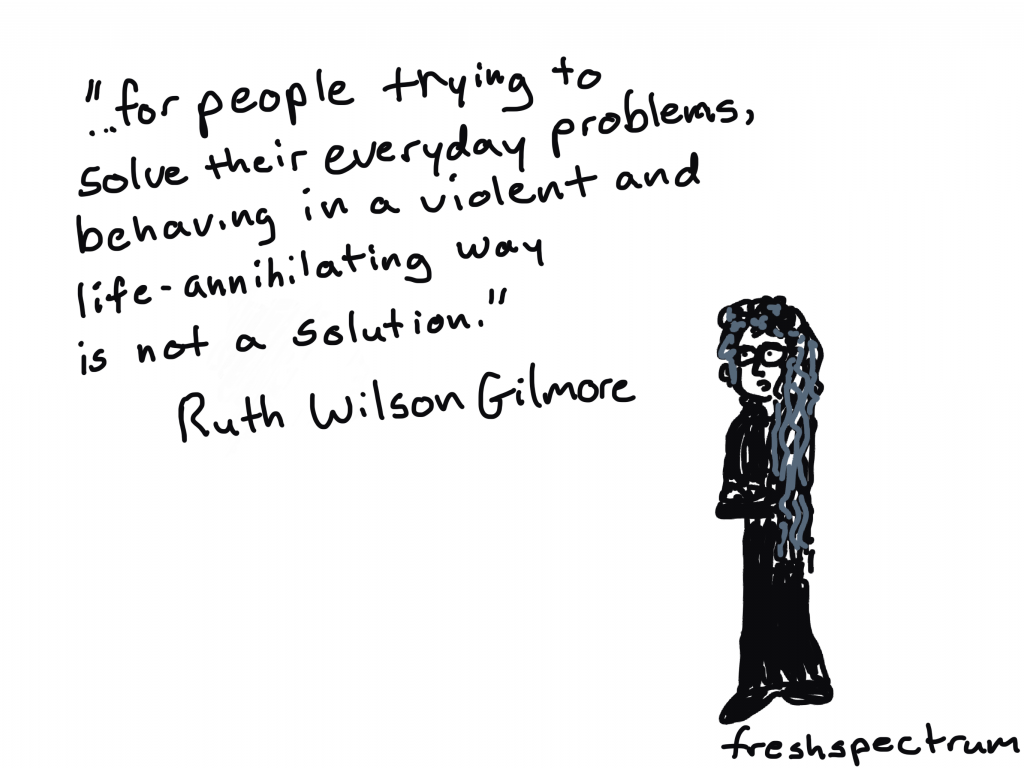
One of the core arguments presented by abolitionists is that the prison industrial complex does not and has never provided safety, especially for BIPOC communities. In fact, the system has done exactly the opposite.
Policing and prisons have a long, consistent, and strategic history of violence against BIPOC and working-class communities and suppressing their organizing. Abolitionist Mariame Kaba eloquently states:
There is not a single era in United States history in which the police were not a force of violence against black people. Policing in the South emerged from the slave patrols in the 1700 and 1800s that caught and returned runaway slaves. In the North, the first municipal police departments in the mid-1800s helped quash labor strikes and riots against the rich. Everywhere, they have suppressed marginalized populations to protect the status quo. So when you see a police officer pressing his knee into a black man’s neck until he dies, that’s the logical result of policing in America. When a police officer brutalizes a black person, he is doing what he sees as his job.
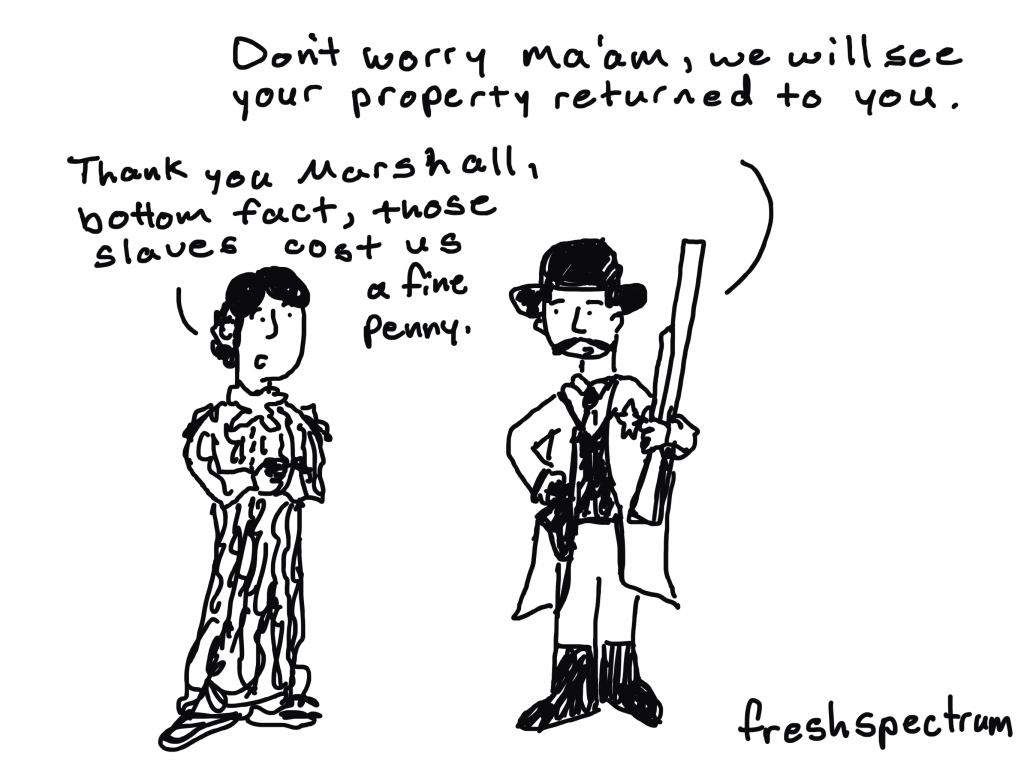
MPD150 in Minneapolis, “a participatory, horizontally-organized effort by local organizers, researchers, artists and activists” to quote their website, explains that turning to the police has never been a safe option for BIPOC communities:
“We want to make sure everyone has someone to call on for help. It’s critical to note, though, that for many of us, especially those of us living in under-resourced, Black, indigenous, and people of color communities, the police have never been helpful. In fact, they’ve been a major source of harm and violence. Millions of us already live in a world where we don’t even think about calling on the police for help; it isn’t some kind of far-future fantasy. “
Other accounts of this history explain “this tension between African American communities and the police has existed for centuries” and “police brutality isn’t an anomaly, but is built into the very meaning of law enforcement in the United States”. In short, the prison industrial complex does not and has never kept Black communities safe.
I have personally fielded a number of questions as I have engaged in dialogue with friends and family about abolition. Questions like: What about perpetrators of domestic and sexual violence? What about murders and rapists? Where will they go?
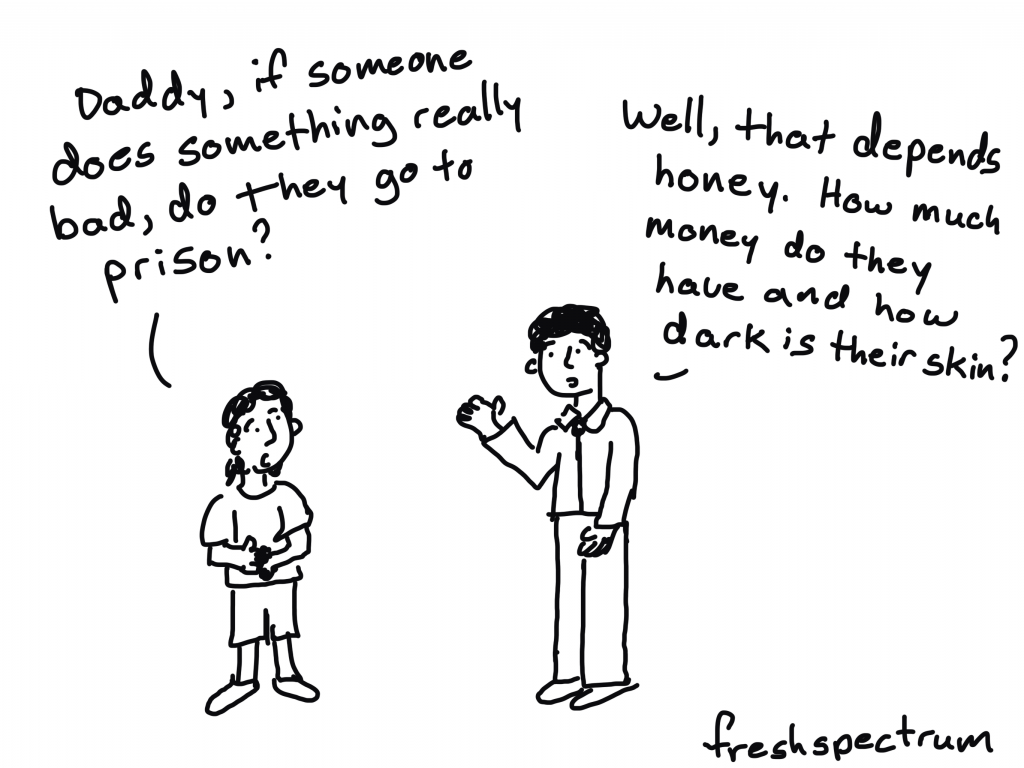
The first thing that comes up for me in these conversations is ways in which the prison industrial complex has consistently murdered, raped, and sexually assaulted BIPOC and LGBTQ communities. Safety is not what we get when we interact with this system and these questions ignore this reality. Specific to sexual violence, multiple studies have demonstrated that police officer sexual violence is a widespread, systemic problem in our country, especially for Black and other women of color. Moreover, we know that majority of perpetrators are someone survivors know personally, the vast majority of rapes and attempted rapes do not end with incarceration, the vast majority of incarcerated women have been victims to sexual and domestic violence, and women who act in self-defense of these crimes are often imprisoned, especially BIPOC and transgender women.
Abolitionist Angela Parker poignantly articulates a deeper explanation for why questions like these are missing the mark, and asks us to more deeply interrogate the assumptions undergirding these questions:
When people ask me what we will do with the rapists and murderers if we abolish the prison industrial complex, including prisons and police, I typically respond “what are we doing with them now?” The original question itself requires unpacking. To ask “what will we do about the rapists and murderers” implies that rapists and murderers primarily make up the 2.3 million people currently incarcerated, not inclusive of people impacted by mandates, probation, parole, and e-carceration. The underlying implication is that prison is a place where dangerous people go to be held accountable for their poor choices. If this were the case, then the fact that Black and indigenous folks, and immigrants primarily make up the prison population means we are predisposed to dangerous behavior and poor choices. Yet we know this is not the case. So before we dive deeper into this question, I want us to challenge this subconscious thought. Prison is not a place for bad people. In the U.S., prison is an invention of white supremacist capitalism. It functions, essentially, to disappear unwanted populations.
In short: prisons and policing do not provide our communities with justice or safety. And they do not actually address the problems that lead people to commit acts of violence. Can you imagine a world where we funneled more funding to support community and survivor centered forms of accountability and healing?
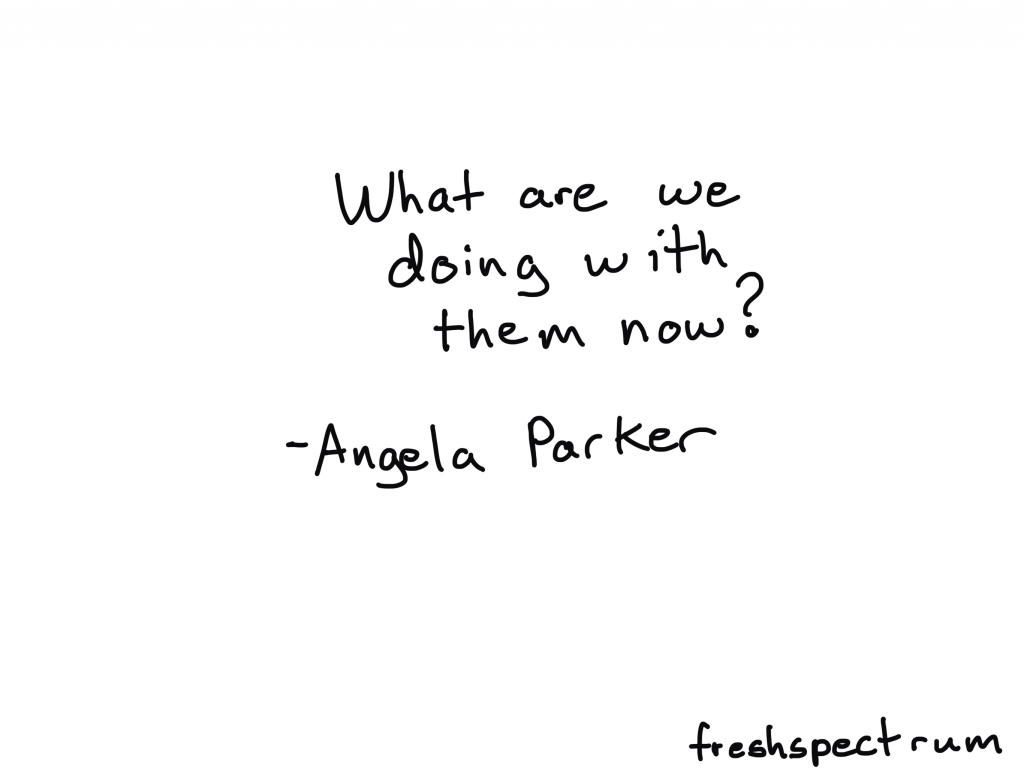
You might be wondering why not just reform policing through more training, limiting use of force, and other reforms?
Reform assumes police follow rules, but in actuality police break rules all the time, including by acting violently against protestors. Police departments with reforms in place like body cameras and banned chokeholds do not stop them from breaking those rules in order to murder BIPOC people. Attempts to reform policing and the prison industrial complex have not worked historically, time and time again. For example, George Floyd was murdered despite a slew of reforms in place:
More training or diversity among police officers won’t end police brutality, nor will firing and charging individual officers. Look at the Minneapolis Police Department, which is held up as a model of progressive police reform. The department offers procedural justice as well as trainings for implicit bias, mindfulness and de-escalation. It embraces community policing and officer diversity, bans “warrior style” policing, uses body cameras, implemented an early intervention system to identify problematic officers, receives training around mental health crisis intervention, and practices “reconciliation” efforts in communities of color. George Floyd was still murdered. The focus on training, diversity and technology like body cameras shifts focus away from the root cause of police violence and instead gives the police more power and resources. The problem is that the entire criminal justice system gives police officers the power and opportunity to systematically harass and kill with impunity.
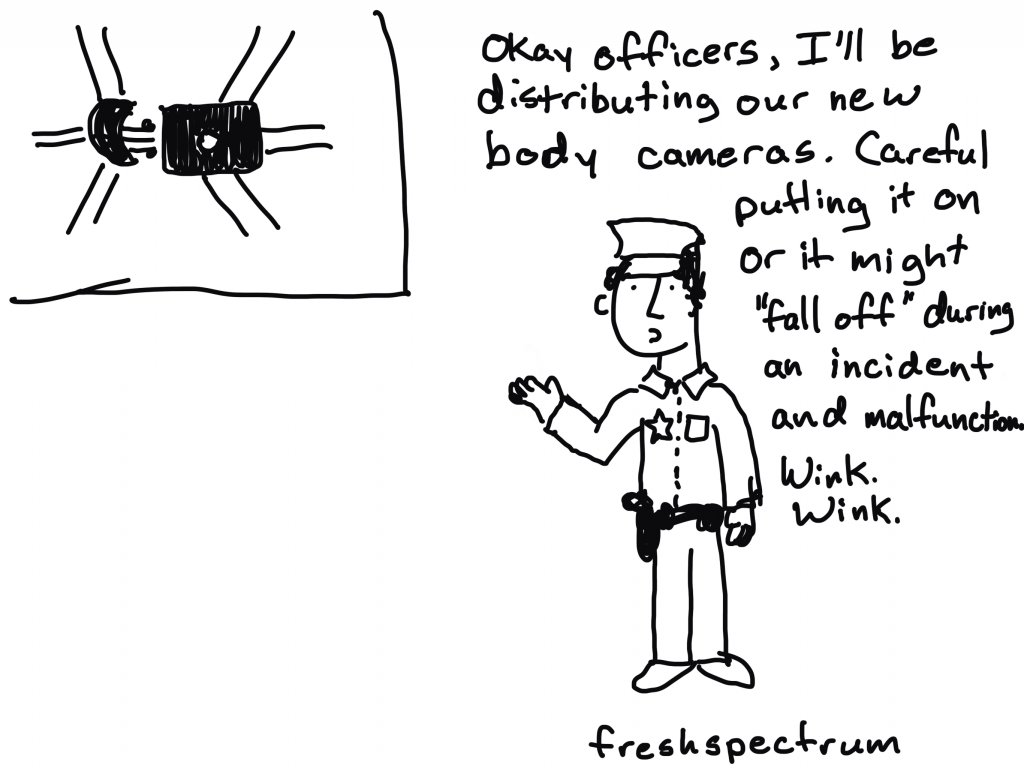
In another example, New York amended its patrol guide to treat transgender and gender nonconforming communities with dignity and respect — guidance included things like referring to people by their preferred gender pronouns — and yet transgender and gender nonconforming New Yorkers reported police abuses continued years after the reform. The Obama administration’s President’s Task Force on 21st Century Policing final report is another example of reform that a member of the task force has explicitly stated will not work and instead argues “policing as we know it must be abolished before it can be transformed.”
Okay, but really how else can we keep our communities safe?
As I recently heard during a virtual teach in hosted by Critical Resistance, Black Visions Collective, Reclaim the Block, and many others “We can dramatically reduce policing now because policing is not about crime control”. In fact, a majority of police officers’ time is not spent on policing on violent crime as Alex Vitale, author of the End of Policing, explains during a Jacobin interview.
What if we could reimagine how we address social problems and move beyond conceptualizing violence as an individual problem (e.g., some police officers are good, there are just a few bad apples).
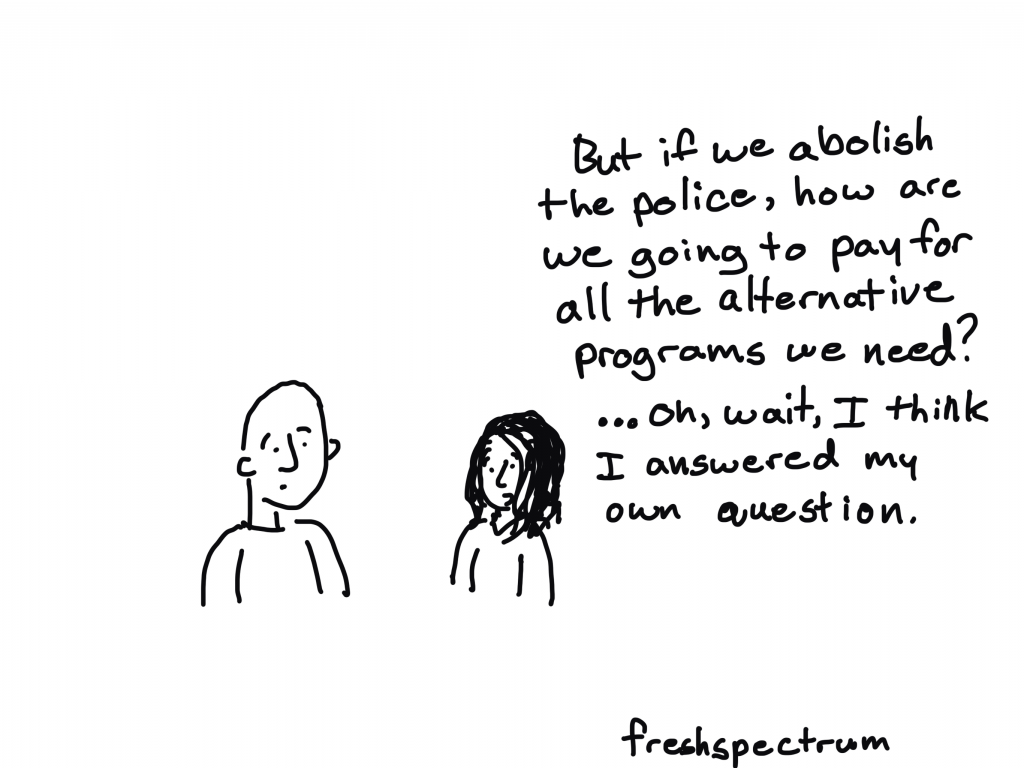
Punishment centers individualistic understanding of crime and ignores the systemic and structural drivers that create the conditions that lead to crime and inequality. And this is directly linked to the neoliberal, racist capitalism, which also perpetuates individualist, racist perceptions of inequality: if Black and poor folks could just pull themselves up by their bootstraps, they could succeed.
What if we could disentangle our understanding of accountability from punishment? Can you imagine a world where we hold people accountable for their violence and harm without punishment and throwing them in cages, which only perpetuates and nurtures violence?
So, what are the alternatives?
First, communities have demonstrated that they can create safety for their communities beyond policing. Communities across our country in the context of protests and organizing have banded together to create safer communities including things like mutual aid, coordinating the supply of personal protective equipment (PPE) and first aid, setting up networks to share information about upcoming police sweeps of unhoused people and anticipated attacks from white supremacists, pod mapping, and approaches to restorative and transformative justice grounded in community, not funneled through the prison industrial complex.
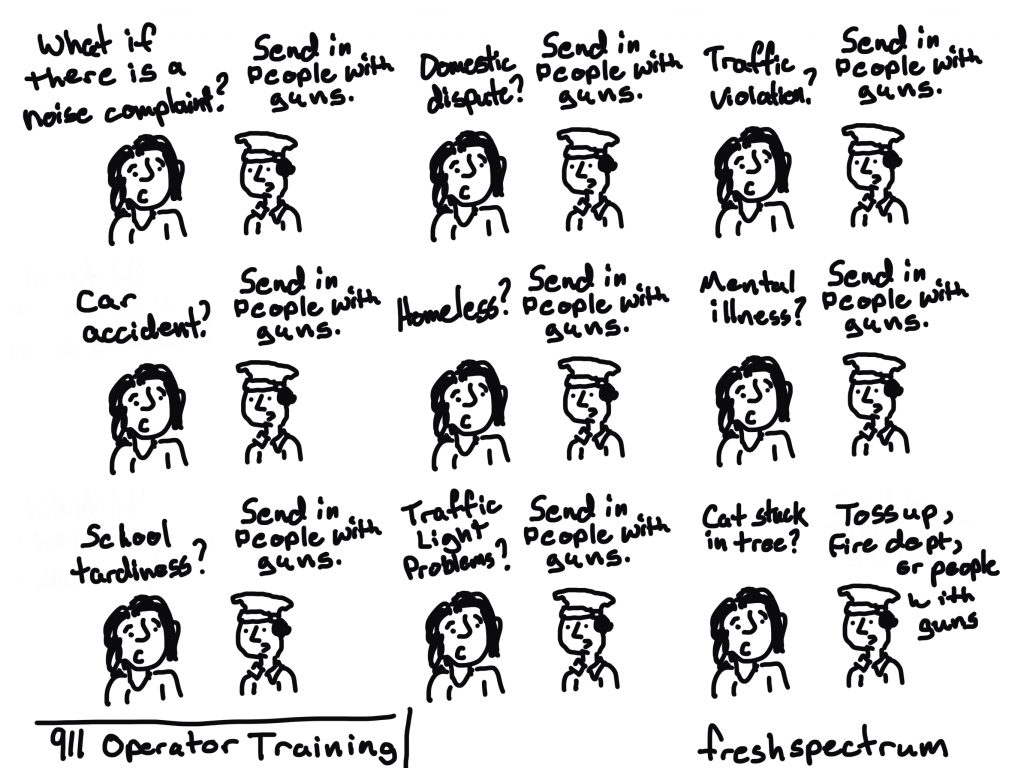
Second, rather than reforming a system that has been designed to harm and inflict violence, abolitionists argue that we should move towards abolishing the entire prison industrial complex, including policing, courts, and imprisonment. Abolitionists are not solely arguing to defund, divest, and dismantle the prison industrial complex, they are arguing to increase positive, proactive investments in community to foster healing, prevent harm, and create safer communities.
Mishi Noor, activist with Black Visions and Reclaim the Block, spoke to Trevor Noah about their rationale for shifts in their organizing strategy in Minneapolis from a focus on reform within the system to abolitionist demands to reduce the “the scope, the scale, and the power of police”.
Abolitionists reject the idea that punishment is an effective solution when someone inflicts harm and reject racist, neoliberal capitalism that values profit over people and erases structural and systemic understandings of humans in favor of individualism. This notion that punishment is the solution to individual crime is so ingrained in our systems and minds that imagining a different reality is very difficult for many of us.
If you want to learn more, I can offer a few great places to start:
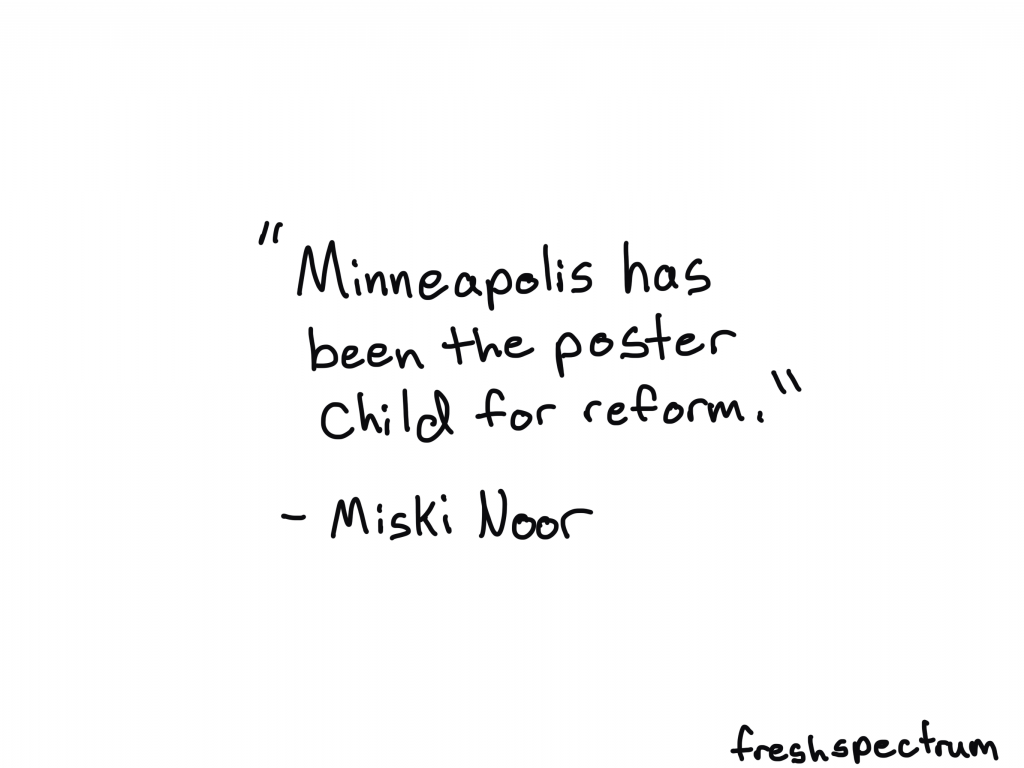
Finally, you might be wondering what does this have to do with evaluation?
At its core, abolitionist practice centers healing, liberation, and transformation and harnesses constant reflection, collaboration, and connection in service of meeting community needs. It’s about going beyond tweaks and reforms, and instead crafting whole scale transformations and creating something new in order to dismantle racist, homophobic, sexist, ableist systems of oppression. Many of us have demonstrated solidarity and even engaged in direct action in support for BLM outside of our evaluation practice over the past few months. What would it look like if we wove an abolitionist perspective into our evaluation practice and explicitly interrogated the ways in which we perpetuate white supremacist values within our organizations and our evaluation practice? What whole scale transformations of evaluation could we foster if we looked closely at the ways in which we tokenize and push evaluators of color to assimilate to hegemonic ways of conceptualizing and practicing evaluation and in turn exclude subjugated forms of knowledge and practice?
In addition to the aforementioned Evaluation as Protest blog, ¡Milwaukee Evaluation! shared Dos and Don’ts for evaluators engaging in protest. And let’s not forget their Call to Arms teach in where they asked us to interrogate the ways in which evaluators are complicit in the normalization and rationalization of neoliberal capitalism and reflect critically on whose economic interests our evaluations serve (e.g. foundations who have made decisions about what matters and the types of questions to ask). Then, on an EvalCentral Unwebinar episode addressing the question Why is Evaluation so White? Vidhya Shanker systematically highlighted the erasure of POC evaluators in the evaluation canon and then shared a generative and transformational response — the co-creation of a Minnesota IBPOC Community of Practice.
These are just a few recent sources of inspiration that help me reflect on the ways I can bring an abolitionist perspective to my evaluation practice and across all of my networks and spheres of influence. For me this has meant reclaiming my time and energy by working directly on abolitionist organizing locally, reflecting on the ways in which I have personally been assimilated into the evaluation field, and moving towards centering subjugated forms of knowledge and practice through my consulting practice and collaboration with others.
If this resonates with you, how might you integrate abolitionist values and principles into your evaluation practice? I would love to hear from you if you want to share, discuss further, or if you have any questions.
In community,
Aisha
Aisha Rios, PhD is an evaluator, applied anthropologist, and the founder of Coactive Change, where she envisions a world where community knowledge is valued and coexists with evaluation to advance social justice. Her mission is to support change agents, advance equity, and disrupt systems of oppression.
If you are interested in working with Aisha, you can schedule a free 30 minute consultation at https://calendly.com/aisharios.